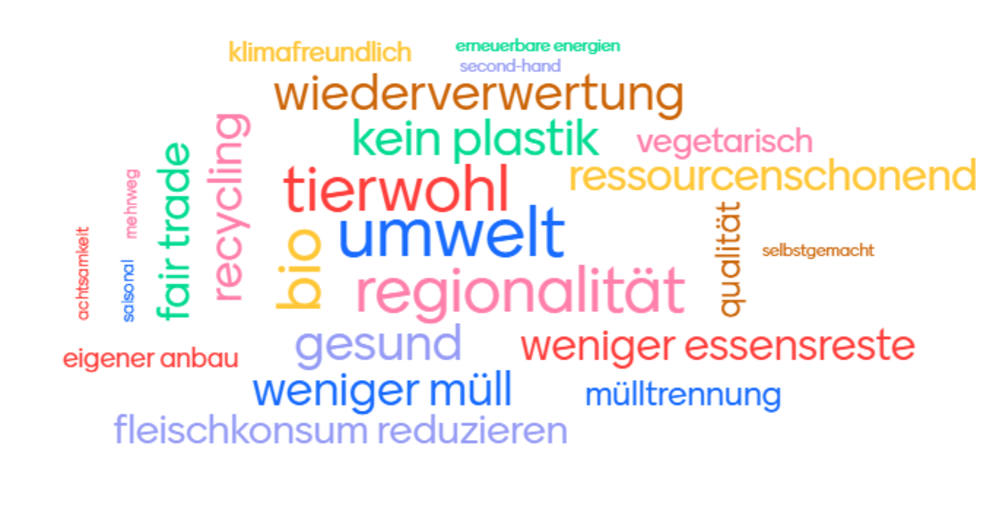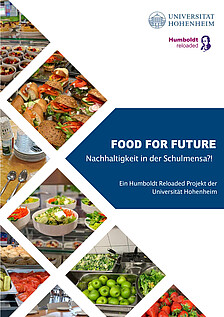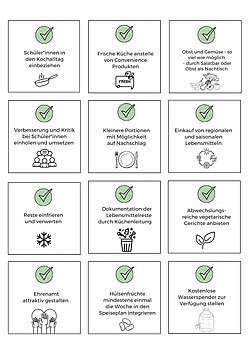Report on the results of the project "Food for Future - Sustainable nutrition in the school canteen"
The evaluation of our project questionnaires has now been completed. As part of the project, we surveyed a total of 210 pupils, 17 teachers, 26 cooking parents and 16 permanent kitchen managers on the topic of sustainability. Many thanks to all participants!
The analysis of the questionnaires provided us with many insights and we were able to develop various recommendations for action for schools and canteens. The detailed results can be found in our project report.
Here are some insights into the relevant main topics of our evaluation:
Use of regional and seasonal products:
Our evaluation shows that all canteens surveyed work with regional suppliers and, to a large extent, pay attention to the use of seasonal and regional products. In order to reduce food waste, individual portion sizes with the option of having seconds, freezing leftovers and recycling them, as well as passing on leftover food to cooking parents or food sharing have proven successful.
Sustainability in the school lessons:
More than half of pupils attach importance to a healthy diet. However, only eight percent of children and young people said that healthy and sustainable nutrition is regularly discussed in class. The evaluation of the teacher questionnaires also showed that nutrition is often neglected in class. One solution would be to introduce new teaching units or even entire subjects on the subject of nutrition.
The participating pupils describe the term "sustainability" as follows:

Volunteer cooking parents:
A key success factor is the principle of volunteer cooking parents. Positive encouragement for potential members is essential to maintain the cooking teams. A pleasant working atmosphere, thank-you parties and free meals on cooking days help to keep volunteers motivated.
Involvement of pupils:
Another important aspect is the involvement of pupils in the process of menu design and the implementation of the topic of sustainability. Through their active participation, pupils can develop a comprehensive understanding of sustainability and healthy eating at an early stage.
The school canteens we visited have already shown us many good aspects of how school kitchens can contribute to the topic of sustainability. This is a step in the right direction, but canteens with a fresh food kitchen, like the school canteens we visited, are still the exception rather than the rule. In order for school canteens to contribute to the nutritional turnaround, requires a fundamental change in catering systems, which are currently operated by external suppliers in the majority of German schools.
Here are our recommendations for implementing sustainability in school canteens:
We appreciate the support of all those involved and would be delighted if our results serve as inspiration for the cooking teams and canteens.
On October 24, we will be presenting our project at the Student Research Conference (STUFO 2024) at Hohenheim University.


